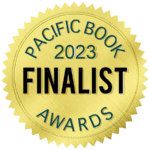Title: An Exhibition of Existence
Author: Dr. Waleed Addas
Publisher: PartridgeSingapore
ISBN: 9781543750287
Pages: 54
Genre: Self-Help
Reviewed by: Barbara Bamberger Scott
Pacific Book Review
 With an academic background in mathematics, author Dr. Waleed Addas demonstrates
With an academic background in mathematics, author Dr. Waleed Addas demonstrates
in An Exhibition of Existence that his intellectual powers have taken him far afield,
beyond the realm of reality and reason, into a perspective based on revelation.
In this brief but tightly woven narrative, Addas begins by examining the “free lunch”
principle, concluding that while it may seem there is nothing free in our human
existence, all choices come with a price, it is a fact that the entire Universe came into
being out of nothing. Just looking at the night sky reinforces this viewpoint, since some
stars, scientists assert, are dying but still “shine” while others are just being born and
cannot be seen. Such data should be sufficient to convince readers that they do not
have to see something in order to believe it. The same applies to the existence of what
Addas calls “A Unique Absolutely Dissimilar Only One True God.” He expounds his
theory of “the three R’s: Revelation, Reason, and Reality,” and their relation to each
other, and to one’s means of exploring the truth. Since the power of Reason still cannot
offer proof for existence or non-existence, it remains for humans to examine Reality
through the medium of faith, or Revelation. Addas believes that Jews, Christians, and
Muslims all have a grasp on Revelation through their prophets – Moses, Jesus, and
Muhammad – like a “necklace of pearls” all offering the same message: the Oneness of
God.
Addas is a skilled wordsmith whose gentle, wise, and sometimes humorous approach
enlivens this narrative. Clearly, he has given these large matters a great deal of
personal study and organizes his principles thoughtfully, including fascinating photos
that contribute to the depth of the material presented. He has, for example, devised a
system of “Eleven P’s: Precepts, Perception, Plan, Participate, Policy, Program,
Processes, Product, Prize, Performance and Piety” – saying that they can be applied
equally usefully to the organization of a multi-national business or of a humble
household. Addas gives great weight to the laws and principles of Islam since
Muhammad was, he believes, the most recent and final revealer. His small book gives
broad scope for thinking outside typical philosophical and religious parameters and
could provide a dynamic focus for group study and individual contemplation.



Follow Us